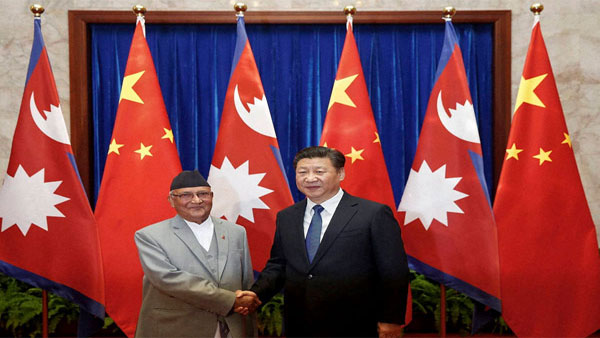Chinese premier Xi Jinping visited Nepal recently, where China’s influence has grown rapidly, prompting Washington to push back – but is it ‘too little, too late’?
Nepal, a tiny, landlocked nation in the Himalayas, has traditionally been dominated by its giant neighbour, India. Defeated by British Indian forces in the Gurkha War, it became an imperial protectorate. Then, following independence in 1947, the new republic of India controlled it as a client state. Nepal was important primarily as a buffer between India and China, which annexed Tibet in 1950.
But now the tables are turning. India’s influence in Nepal is declining, and China’s is on the rise. Beijing’s regional ambitions have encountered resistance in Pakistan, Maldives and elsewhere, but, in Nepal, it is on a roll. And with President Xi just back from a visit to Kathmandu (the first trip by a Chinese president since 1996), Delhi is scrambling to recover some of its lost influence, while plans are afoot in Washington to counter China’s expansion.
When Narendra Modi became prime minister in 2014, Nepal was still firmly within New Delhi’s orbit. The two countries share long-standing cultural and religious links, and operate an open-border policy.
India has long been Nepal’s top trading partner and main source of imports, and Nepali traders depended on India’s ports. Modi’s “neighbourhood first” policy got off to a promising start, with an increase in development aid.
But India has squandered its dominant position thanks to misguided policies that have oscillated between bullying and neglect.
In 2015, for example, New Delhi objected to Nepal’s new constitution for allegedly discriminating against the Madhesi ethnic people who have close ties to India. Rioting broke out and India imposed an unofficial blockade on imports of fuel and essential supplies at a time when Nepal was already reeling from a recent earthquake.
Kathmandu blamed New Delhi for the disruption, and China stepped in with emergency oil supplies.
To make matters worse, Modi’s demonetisation of high-value rupee notes hurt Nepal, as its economy relies heavily on remittances from expatriate workers in India. Many Nepalis suddenly found their money had become worthless, and the Indian government seemed reluctant to address the issue. While the Bhutanese were promptly allowed to exchange their rupees, Nepal was left in the lurch.


Comment here